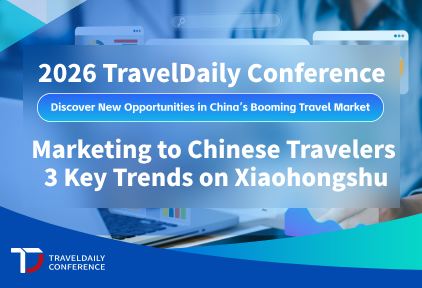ChinaTravelNews, Ritesh Gupta – It isn’t a straightforward task for hotel companies or network carriers that have been around for years to gear up for digital transformation. The process-centric nature of these businesses makes it quite challenging for them to attain requisite agility.
A critical aspect of undergoing such transformation is to ensure that the IT architecture, industry-specific systems, customer data platform, analytics that results in actionable insights etc. pave way for a topnotch customer experience (CX). Even if a non-Chinese travel company is on the right path, it doesn’t necessarily mean that the same would result in the desired omni-channel CX in China. In fact, foreign brands are recognizing the significance of localization by being “fully-embedded”.
Exemplifying the same, Thailand-based ONYX Hospitality Group is in the midst of a major overhaul to its approach towards China.
As the multi-brand group prepares for major expansion in China, ONYX has chosen to set up its Greater China regional office in Shanghai, to be led by Gina Wo, appointed as ONYX’s SVP and Head of Greater China in March this year. A couple of months prior to this appointment, the Thailand-based company signed a deal with China’s real estate enterprise Sincere Holdings Group to develop and open Shama serviced apartments in 12 key cities in China. Currently, there are seven cities (Daqing, Hainan, Fujian, Hangzhou, Guangzhou, Guilin and Shanghai), where the group already has or properties coming up in China, with a major focus on the serviced apartments and upper upscale hotels category.
Crafting a laser-sharp focus
Several areas are being dwelled upon to improve the group’s presence. A major approach is to make the most of investment that ONYX has done centrally, and if the same isn’t enough for China, then split it and build it specifically.
1. Transformation isn’t about just digital assets: An organization can’t only focus on replicating the experience on a direct channel in a new market. There is more to it, ensuring every offline and online interaction is meaningful and at the same brand delivers on its promise.
“The goal is to localize our efforts from top-down (involving senior management as part of the drive) in China,” shared Chetan Patel, VP – Strategic Marketing and E-Commerce, ONYX Hospitality Group.
“Just the digital part (only focusing on it) isn’t enough…operationally, physical touchpoints, marketing etc. everything has to work in tandem. With expansion, it has been decided to make a concerted effort to enhance localization efforts,” added Patel. The group felt with China’s increasing importance as a huge growth destination for new properties, now is the time to enhance its Greater China team capabilities. The group is in the process of strengthening its regional operations, hotel openings and commercial expertise to ensure sustained and continued growth. Also considering the increasing significance of China as a source market for its Asia-Pacific hotels, the team that is going to enable ONYX to establish a stronger local connection, will also further in penetrating overseas, too. “We are in a transition phase at this juncture,” mentioned Patel.

Chetan Patel, VP – Strategic Marketing and E-Commerce, ONYX Hospitality Group
2. Eradicating uncertainty associated with systems: The group has purposely focused on using one system across the organization – be it for CRS, RM, accounting software etc. “We analyzed what is being used generally by offices/ teams and whether the same could be used in China. For example, CRS seems to be working but sometimes becomes slow or not accessible. So if our booking engine is posing problems, then we have to work with a vendor to sort it out. But if the issues are significant, then we need a different CRS, for an example. We have gone deeply into evaluating the performance of systems. And once the team in China is fully structured, they would support us to streamline the whole aspect,” explained Patel.
3. Marketing campaigns and technology stack: A major challenge for marketers is to assess their resources and association with advertising technology (ad tech) specialists for campaigns in China. They need to assess whether they are able to evaluate conversion tracking, cross-media attribution etc. with their existing platforms. Referring to the example of search engine marketing, Patel mentioned that their existing search management solution is capable of doing the same and the team doesn’t need to be on Baidu to advertise there. “But WeChat and Weibo are a couple of examples, that highlight the need for certain platforms or channels that need to be managed separately,” he added. “So it boils down to what can be managed centrally and what on a localized basis. For the latter, the local team in China would take the lead.” This would also help in coming to grips with issues like gaining access to ad inventory since major publishers have developed their own SSP (supply side platform) technology and they have their own exchanges as well. Even though companies like Alibaba interact with potential advertisers outside for major events such as 11.11 Global Shopping Festival, (This means that Alibaba has offices in markets like Thailand and for big events like 11.11 Global Shopping Festival travel advertisers don’t need to have any local presence in China. But Patel says there could be other opportunities/ events for advertising and if they don’t have local teams then they will miss out on them. So Amari believes there is a need for a staff in China that can help them to advertise in a proper manner rather than only looking at some big events/ advertising opportunities) can Patel pointed out that there could be numerous other opportunities that can’t be managed remotely.
At the same time, the team at ONYX is keen on utilizing some of the recent investments, for instance, their website that is built on a platform that can personalize different aspects based on who the user is. “Since we have made the investment we would rather stick to it and this would work as long as there is locally relevant content available. As for driving the audience to our website, we would partner with the local team and 3rd party specialists to guide us for ad formats, ad networks etc. to drive traffic and then convert,” said Patel. In this context, the significance of video ads needs to be underlined. Video advertising is the fastest growing ad format in this market and will account for 13-14% of all advertising spend by 2021, according to eMarketer. Patel mentioned that the group is also open to appointing UX and UI specialists for ensuring their digital interfaces and content prove relevant for the consumers.
4. Managing data appropriately: There is uncertainty around the China Cyber Security Law (CSL) as for how this initiative is going to impact foreign businesses operating in China and how to prepare for the same. The law regulates how companies should handle digital information, including whether and under what circumstances data can be transferred out of mainland China. Providers would need prior approval before providing VPN services. Businesses using unapproved VPNs could be impacted, too. According to reports, foreign companies need to comply with the new data storage and transfer regulations by the end of this year.
In case of ONYX, the group has been working on plans to gather data via a customer data platform and work on actionable insights. “We haven’t implemented the system fully yet. If customers are booking then basic information is needed about them. On our part, we are minimizing the amount of information needed and accordingly collected. What is logical for us to ask is what we are focusing on – phone number, email for confirmation; nationality (for specific rates or payment options that are preferred in a certain market or serving the guest). Of course, we go deeper in case of a loyalty program – seeking birth dates, address etc. There is justification to collect such information then,” said Patel, who added that impetus would be consent-oriented gathering of data. Overall, be it for the General Data Protection Regulation (GDPR), to be implemented later this month or CSL, things aren’t easy for businesses. “The biggest hurdle is to get in line multiple technology partners. What is a customer wishes to get their data deleted? It could be stored in multiple systems – CRS, loyalty, CRM etc. All of this needs to be looked into,” said Patel.
5. New channels: China has built interesting propositions, ones where traffic is massive. Meituan-Dianping has carved a niche for itself as a “super app” for services, offering at least a dozen services. Alibaba’s Fliggy service platform is where several travel brands have chosen to open their respective storefronts. “Fliggy is not an OTA, it is a platform. It is for a brand to manage their pricing, promotions etc. So we have internally align ourselves how to make the most of this opportunity. But, yes, no question we have to get on it,” said Patel, who added that the company needs to check the activity of online travel agencies and how the dynamics of hotel distribution are evolving before ONYX makes the next move.




